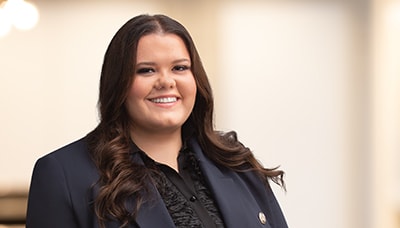Highlights
The U.S. Department of Health and Human Services has finalized a rule expanding ownership and control disclosure requirements for nursing homes enrolled in Medicare or Medicaid
The new rule seeks increased transparency with regard to private equity and real estate trust ownership in nursing homes
Existing Medicare skilled nursing facilities should anticipate off-cycle revalidations and be prepared to update ownership disclosures in conformity with the new rule
As part of a push to spotlight the ever-growing role of private equity in the healthcare industry, the U.S. Department of Health and Human Services (HHS) and the Centers for Medicare & Medicaid Services (CMS) finalized the nursing home ownership disclosure rule requiring Medicare skilled nursing facilities and Medicaid nursing facilities to disclose extensive ownership and managerial information.
Effective Jan. 16, 2024, nursing homes enrolled in Medicare or Medicaid must make more extensive disclosures about their ownership and control. This includes an expanded definition of “additional disclosable parties,” which now includes entities that:
- Exercise operational, financial, or managerial control over the facility
- Provide financial or cash management services to the facility
- Operate as a real estate investment trust leasing or subleasing property to the facility
- Provide management or administrative services, management or clinical consulting services, or accounting or financial services to the facility
These enhanced disclosures are aimed at capturing a broader range of entities with an ownership or control interest in the nursing homes – chief among them, private equity investors.
The new disclosure requirements will apply not only to initial enrollments, but also to currently enrolled nursing facilities, which will have an obligation to ensure their enrollment records comply with the new requirements upon revalidation or change of ownership. In addition, CMS reserves its right to conduct off-cycle revalidations of skilled nursing facilities to collect the required disclosures once the new Form CMS-855A is finalized.
The proposal was unveiled in February 2023 after long-standing concerns about the quality of care and operations of nursing facilities, specifically those owned by private equity companies or investment firms based on a study of the trends in ownership as related to quality of care conducted by HHS. The agency has stated that the disclosure requirement will increase transparency in nursing home ownership, allowing CMS to better monitor nursing facilities and hold them accountable for the quality of care they provide.
Ultimately, the ownership information disclosed by providers will be made publicly available with the goal of increased transparency, allowing families to make an informed decision when choosing care for their loved ones. However, critics of the rule argued that it would compound the administrative burdens already facing these facilities and questioned whether the rule would truly provide patients and their families with meaningful tools to aid in their selection of a quality facility.
Current nursing facility providers should begin planning now in advance of the January go-live date for these new requirements in order to be prepared for impending on- or off-cycle revalidations.
For more information, please contact the Barnes & Thornburg attorney with whom you work or Jason Wallace at 312-214-4577 or jason.wallace@btlaw.com, Meagan Dimond at 614-628-1423 or meagan.dimond@btlaw.com or Harte Brick at 312-214-8815 or hbrick@btlaw.com.
© 2023 Barnes & Thornburg LLP. All Rights Reserved. This page, and all information on it, is proprietary and the property of Barnes & Thornburg LLP. It may not be reproduced, in any form, without the express written consent of Barnes & Thornburg LLP.
This Barnes & Thornburg LLP publication should not be construed as legal advice or legal opinion on any specific facts or circumstances. The contents are intended for general informational purposes only, and you are urged to consult your own lawyer on any specific legal questions you may have concerning your situation.














